This weekend saw good and bad news for Warner Bros, a studio desperately in need of the former. Their highly anticipated antihero adventure Suicide Squad made over $267m worldwide in its opening weekend, breaking an August record in the US and helping to fight back against the negative reviews the film had received. Because yeah, about those reviews ...
Critical reception for Suicide Squad has been super-bad, with the film scraping together a measly 26% rating on Rotten Tomatoes, making the film even less liked than Batman v Superman: Dawn of Justice. After Zack Snyder’s superhero smackdown crash-landed in March, Suicide Squad was retooled and repositioned as the film’s wittier, hipper sibling, aimed at restoring faith in a DC universe that was slowly falling apart.
But while fans like the film slightly more (it scored a B+ with audiences, compared with Batman v Superman’s B), it’s already suffering from poisonous word of mouth. After over-performing on Thursday night and Friday in the US, it suffered a steep decline on the Saturday with a 41% drop (in comparison, Captain America: Civil War fell just 19%).
It’s the final underwhelming blockbuster of what’s been an underwhelming season at the cinema after last year’s record summer. But what’s been going wrong?
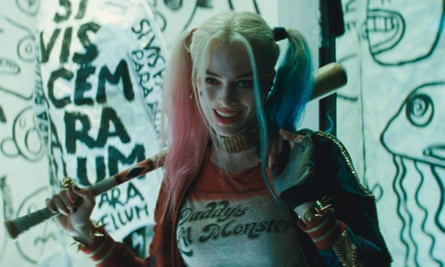
1. The dreaded cinematic universe
Ever since the Avengers assembled across multiple movies, every other studio has been eagerly brainstorming ways to turn a linear franchise into a criss-crossing “cinematic universe”. Those two words have been attached to everything from the Fast & Furious series to Hasbro’s films. This year has seen Warners’ DC masterplan start to collapse, with their attempt to replicate Marvel’s impressive handiwork feeling laboured. While Captain America, Iron Man and their cohorts zipped around effortlessly from film to film, Batman and Superman have sluggishly stomped between efforts, grimly smashing everything in their sights.
It’s not exactly breaking news that studios are eager for cash, but cinematic universes have made them blind, deaf and dumb with greed. The sharp drop-offs for both Batman v Superman and Suicide Squad show that anticipation and brand awareness will only get you so far, and that audiences, savvy enough to understand what’s being constructed beyond the framework of the film they’re watching, need something more to maintain their interest. Everything now hinges on next year for Warners, with Wonder Woman and Justice League testing both the loyalty of their fanbase and the studio’s ability to learn from their mistakes.
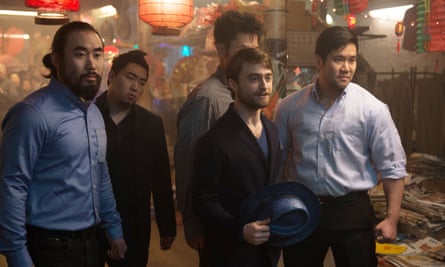
2. Eastern promises
The growing importance of the Chinese market, and studios’ pandering to overseas audiences to ensure added profits, have never been more noticeable than during this year’s set of blockbusters. Independence Day: Resurgence crowbarred in two Chinese characters, lines of dialogue in Chinese and prominent placement of the Chinese drink Moon Milk, while around one-third of Now You See Me 2 was set in Macau.
Now, adding some internationality to the often dull uniformity of American blockbusters is no bad thing, but these decisions aren’t led by creative impulses. A blockbuster that feels like a commercial product is hardly a unicorn, but the Chinese influence is making movies feel more mechanical than ever before.
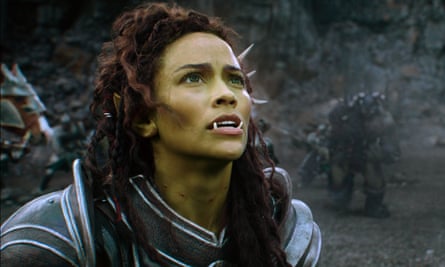
3. Franchise non-starters
The only thing a studio wants more than a successful sequel is a film so successful that it will need a sequel of its own. This summer, Universal, coming off a record year, hoped that its ambitiously titled video-game adaptation Warcraft: The Beginning would launch a new set of related films, but the $160m adventure was a washout in the US, making less than $50m. It might have clawed back some cash in China, but local interest has been so poor that a sequel is unlikely.
Warners was also hoping that an umpteenth Tarzan film would lead to further adventures, but current box office suggests otherwise. A $335m global total is no disaster but with a $180m budget attached, making more jungle-set capers would be a risky decision. The Nice Guys was also given one of the most blatantly open endings of the season but, despite strong reviews, it failed to catch on with audiences so more instalments seem unlikely. The original films that have secured sequels this season are The Secret Life of Pets and Lights Out, showing that animation and horror are still the most reliable genres in the business.
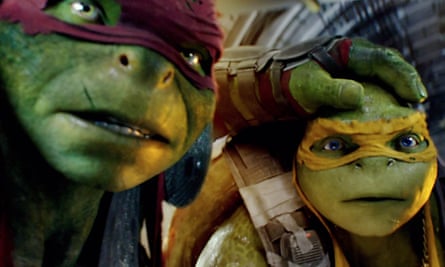
4. Franchise fatigue
While audiences and critics were happy to see a sequel to Finding Nemo (Finding Dory has become the biggest animated film of all time in the US), they’ve been less impressed with most other sequels offered up this summer. Globally, Teenage Mutant Ninja Turtles: Out of the Shadows made less than half of the original’s surprise $493m take; Alice Through the Looking Glass made less than a third of Alice in Wonderland’s $1bn total; and The Huntsman: Winter’s War made just $164m in comparison to the $396m that Snow White brought in.
The first Alice and Snow White films worked because of the awareness that their title characters brought with them, but audiences were less familiar with anything that came after (the Huntsman plot was an entirely new invention), while a Ninja Turtles sequel was hardly at the top of anyone’s wish-list. Even no-brainers under-performed, such as X-Men: Apocalypse ($534m to Future Past’s $747m) and Ice Age: Collision Course ($288m to Continental Drift’s $877m), suggesting a general franchise boredom. But all of these films had one other thing in common ...

5. Bad reviews
It’s the most obvious point to be making but one of the major problems this season is that Hollywood just isn’t making good films. The battle to lure audiences away from Netflix was temporarily won last year thanks to event movies that were loved by fans and critics (Star Wars: The Force Awakens; Jurassic World; Inside Out; The Martian) but this year’s crop has seen a major dip in quality. Angry DC fans tried to shut down Rotten Tomatoes last week after the negative Suicide Squad reviews, but the film’s sharp drop-off shows the reviews were representative of the film’s general lousiness.
With audiences tweeting their reactions, good word of mouth is even more important, which explains why the films that have succeeded this summer have been the ones that have benefited from critical support. The season’s biggest hit, Finding Dory, has a 94% Rotten Tomatoes rating, Captain America: Civil War boasts 90%, while surprise smash The Secret Life of Pets is up to 75%. That two of these three hits are animated, along with Zootropolis’ huge $1bn take in March (a film which had a 98% rating), also indicate that children remain the most reliable demographic.
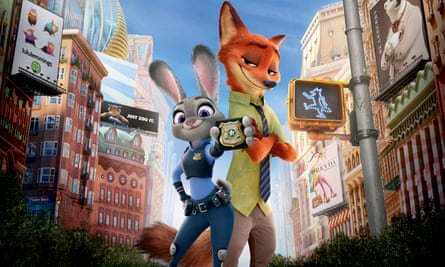
The success of Zootropolis, along with pre-summer 2016 hits The Jungle Book, The Revenant and Deadpool, also shows that seasons have shifted at the box office. The summer months and the Christmas period are no longer the only times when studios unleash their major releases. Audiences are no longer saving up until June but are splashing out on Imax and 3D surcharges all year round.
This summer might have been a disappointment, but this spring definitely wasn’t, and this autumn and winter, bringing along new Star Wars and Harry Potter spin-offs, is unlikely to be either ...

Comments (…)
Sign in or create your Guardian account to join the discussion